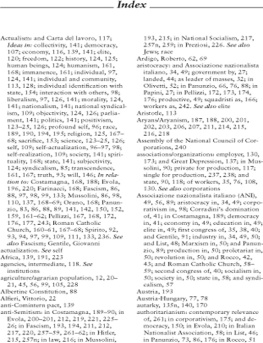ROUTLEDGE LIBRARY EDITIONS: RACISM AND FASCISM
Volume 14
THE SOCIAL BASIS OF EUROPEAN FASCIST MOVEMENTS
THE SOCIAL BASIS OF EUROPEAN FASCIST MOVEMENTS
Edited by
DETLEF MHLBERGER
First published in 1987 by Croom Helm Ltd
This edition first published in 2016
by Routledge
2 Park Square, Milton Park, Abingdon, Oxon OX14 4RN
and by Routledge
711 Third Avenue, New York, NY 10017
Routledge is an imprint of the Taylor & Francis Group, an informa business
1987 Detlef Mhlberger
All rights reserved. No part of this book may be reprinted or reproduced or utilised in any form or by any electronic, mechanical, or other means, now known or hereafter invented, including photocopying and recording, or in any information storage or retrieval system, without permission in writing from the publishers.
Trademark notice: Product or corporate names may be trademarks or registered trademarks, and are used only for identification and explanation without intent to infringe.
British Library Cataloguing in Publication Data
A catalogue record for this book is available from the British Library
ISBN: 978-1-138-93422-1 (Set)
ISBN: 978-1-315-66966-3 (Set) (ebk)
ISBN: 978-1-138-94019-2 (Volume 14) (hbk)
ISBN: 978-1-315-66796-6 (Volume 14) (ebk)
Publishers Note
The publisher has gone to great lengths to ensure the quality of this reprint but points out that some imperfections in the original copies may be apparent.
Disclaimer
The publisher has made every effort to trace copyright holders and would welcome correspondence from those they have been unable to trace.
THE SOCIAL BASIS OF EUROPEAN FASCIST MOVEMENTS
Edited by DETLEF MHLBERGER
1987 Detlef Mhlberger
Croom Helm Ltd, Provident House, Burrell Row,
Beckenham, Kent, BR3 lAT
Croom Helm Australia, 44-50 Waterloo Road,
North Ryde, 2113, New South Wales
Published in the USA by Croom Helm
in association with Methuen, Inc. 29 West 35th Street New York, NY 10001
British Library Cataloguing in Publication Data
The Social basis of European fascist
movements.
1. Fascism Europe 2. Social classes Europe 3. Europe Politics and government 1945-
I. Mhlberger, Detlef
320.533094 JF2071
ISBN 0-7099-3585-4
Library of Congress Cataloging-in-Publication Data
ISBN 0-7099-3585-4
Printed and bound in Great Britain by Mackays of Chatham Ltd, Kent
CONTENTS
Marco Revelli
Detlef Mhlberger
Gerry C. Webber
Henning Poulsen
Robert J. Soucy
Herman van der Wusten
Gerhard Botz
Raphael Vago
Martin Blinkhorn
For Sue and Tania
It is over a decade ago, in June 1974 to be precise, that a group of historians and social scientists met at a conference at Bergen in Norway to deliberate on the question of the sociology of European fascist movements in the period 1919 to 1945, the proceedings of which were published in 1980. In the intervening years considerable further effort has been devoted to establishing the social types attracted to fascism, based on relatively extensive empirical data which has either not previously been subjected to detailed evaluation or has only been discovered in recent years. The present volume summarises these findings and provides an up-to-date review of the current research in the field.
As editor I obviously owe grateful thanks to the efforts of the contributors, who have made the idea behind this volume a reality. My thanks are also due to my colleague Roger Griffin, who undertook the translation of the essay on Italy at very short notice. To Gill Brooks I am much indebted for her sterling efforts in word-processing the manuscript. Also much appreciated was the advice and assistance given to me by Julia McKendry of the Oxford Polytechnic Computer Department. Finally, I would like to acknowledge the support and encouragement I have received from Richard Stoneman of Croom Helm, and thank him above all for his patience in the various delays to the manuscript.
Oxford
Detlef Mhlberger
Marco Revelli
Translated by Roger Griffin
There is now a wide consensus among political sociologists that fascism is in some way or other connected with a pathological interaction between modernity and backwardness. That in other words it is one of the possible permutations of modernisation.
There is however less unanimity on the chief characteristics of such modernisation. To what category of perverse modernity does it belong? Then again, what level of backwardness should be taken as the yardstick for measuring the degree of underdevelopment, and, in the same context, what type of backwardness are we to take as our model? Gino Germani, in the essay which has since become a classic, Fascismo e classe sociale, seems in a way to be referring to a predominantly political type of backwardness when he ascribes the gravity of the crisis of the early 1920s to the inadequacy of channels of integration offered by the Italian political system which might have contained the radical mobilisation of the masses which followed the First World War.1 Simultaneously, however, he refers to a relatively advanced stage of economic and social development when he considers fascism primarily as the product of a secondary mobilisation accomplished, that is, by members of the middle classes whose secure position of social pre-eminence was already being undermined by the growing strength of the working-class movement. In the interpretation by A.F.K. Organski, on the other hand, the overriding impression given is one of economic backwardness. In fact, in his The Stages of Political Development, political phenomena are presented as strictly related to the stages of economic development defined by Rostows model, and hence to the various phases in the process of industrialisation, in terms of which fascism is identified with a low category of development.2 In contrast to Nazism, which he associates with the advanced stage of the welfare state, fascism is seen in fact as one of the political forms typical of the second stage, that of forced accumulation. What is more, it is according to him one of the least modernised examples of these forms in that, as a compromise between residual agrarian elites and emerging industrial elites it clearly qualifies as the product of retarded industrialisation. To take another example, the analysis of Barrington Moore Jr. focuses on the various permutations in the process by which the city becomes divorced from rural life and forms an elite endowed with a mercantile and entrepreneurial mentality, giving rise to a concept of backwardness which is more specifically social.3 According to this approach fascism is seen as the outcome of two aspects of society being drastically out of phase: on the one hand the advanced stage reached by the rapid development of a mass-society in some countries which had started industrialising late but were subjected to violent social pressures in the take-off period, and on the other hand the












